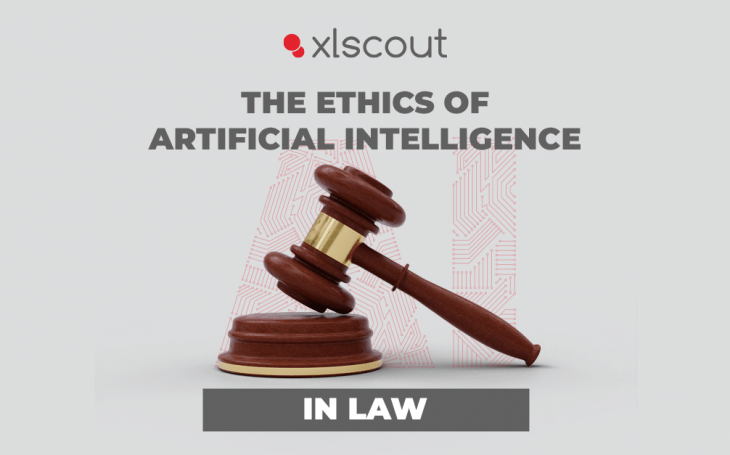
The Ethics of AI in Law: Artificial intelligence (AI) is changing the legal profession, encouraging faster, more precise, and more accessible legal services. However, the growing use of AI in legal practice has raised significant ethical concerns that the legal community must address.
In this article, we’ll look at the ethics of artificial intelligence in the legal system and weigh the pros and cons.
Debates: Ethics of AI in Law
One of the most controversial debates surrounding the ethics of AI in law is the issue of bias. Algorithms and machine learning are used by AI systems to analyze data and predict outcomes. However, if the data used to train these AI systems is biased, the AI can perpetuate that bias, leading to unfair results. This is notably concerning in the legal profession, where decisions taken by judges and lawyers can have far-reaching consequences for people’s lives.
Another major point of debate is the issue of accountability. Who is to blame if an AI system commits an error or produces an unfair result? Is it the system’s designer, the programmer, or the user? This question is especially pertinent when AI systems are employed to make decisions with legal or ethical consequences, such as criminal sentencing or hiring decisions.
Regulations: AI in Law
To address these concerns, legal organizations and governments all over the world are establishing regulations and guidelines for the use of artificial intelligence in the legal system. The General Data Protection Regulation (GDPR) of the European Union, for example, includes provisions for transparency and accountability in the use of AI, and the American Bar Association has published guidelines regarding the implementation of AI in the legal profession.
The issue of transparency is a critical area of regulation. People frequently refer to AI systems as “black boxes,” implying that understanding how they make decisions can be difficult. To address this, some regulations require that artificial intelligence (AI) systems used in the legal profession be transparent and explainable, so that judges and attorneys can understand how they arrive at their conclusions.
Another aspect of regulation is the issue of bias. Some regulations stipulate that AI systems utilized in the legal profession be audited for bias and that corrective action be taken if any issues are discovered.
The Advantages of Using AI in Law
Although there are ethical concerns to take into account when using AI in law, it also comes with benefits. Lawyers can focus on higher-level tasks by automating everyday tasks such as legal research, contract review, and document drafting. This increased efficiency has the potential to save law firms and legal departments money.
Furthermore, AI can quickly and accurately analyze large amounts of data, assisting lawyers in identifying patterns and making informed decisions. AI can assist lawyers in proactively addressing potential legal risks and compliance issues by identifying them. Routine task automation also enables lawyers to offer more individually tailored and effective services to clients.
Finally, AI has the potential to increase access to justice by making legal information more readily available to the general public. However, in the legal field, it is critical to carefully balance these advantages with the potential privacy and ethical concerns associated with AI.
The Ethics of AI in Intellectual Property
While AI is increasingly being used in the field of intellectual property, it is critical to consider the ethical implications of its application. Here are some potential ethical issues associated with the use of AI in the field of intellectual property:
1. Bias: AI algorithms are only as accurate as the data on which they are trained. If experts train the algorithm with biased data, the algorithm may produce biased results. This could lead to unfair patent decisions, or it could help to perpetuate existing biases in the IP system.
2. Lack of transparency: Even for experts, AI algorithms can be complex and difficult to understand. Because of this lack of transparency, it can be difficult to understand how decisions are made and to ensure that they are made fairly.
3. Ownership of intellectual property: There is disagreement about who owns the intellectual property created by AI. Should we recognize the AI or its inventor as the creator of an invention or design? This is not a fully resolved issue, and different countries and jurisdictions may take different approaches.
4. Privacy: AI algorithms can analyze large amounts of data, including personal information. This raises privacy and data protection concerns, especially in the context of patent searches or trademark registrations.
It is critical that those working with AI in the field of intellectual property consider these ethical concerns. Additionally, work on solutions to ensure that AI is used fairly and responsibly. This may include creating more transparent AI algorithms, ensuring diversified and unbiased data sets. And, also establishing clear guidelines for AI-created IP ownership.
Conclusion
The increasing use of AI in the legal industry promises to make legal services more timely, accurate, and accessible. However, this transformation raises serious ethical concerns, such as the possibility of bias and the issue of accountability.
To address these concerns, legal organizations are developing guidelines for the use of AI that emphasize accountability and transparency. As the legal profession embraces AI, it will be critical to address these ethical concerns. It will ensure that users use AI in a just and equitable manner.

